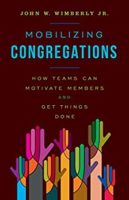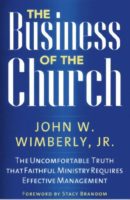
Lately, I have been working with congregations that quietly describe themselves as purple. In these congregations, people who are politically conservative, progressive, and centrist come to worship God, deepen their spirituality, and work together to create a more peaceful, just, compassionate world. My question to these congregations is: Why do you talk so quietly about your purple nature? Why not proclaim it from the rooftops?
It is well documented that younger generations value and enjoy diversity. They prefer situations where there is racial, ethnic, age, LGBT, economic and other forms of diversity in the room. “Politically, millennials are the most independent generation,” reports CNN’s Hunter Schwartz. “They’re the least likely to see big differences between the Democratic and Republican parties. Last March, the Pew Research Center found that 44% of millennials identify as independents.
Poll after poll reveals that the American public is disgusted and discouraged by the polarized nature of our society. Given that fact, why do so many congregations brand themselves as “progressive” or “conservative”? Isn’t a more diverse, heterogenous congregational identity preferable?
Diversity with love
Wouldn’t such people find inspiration and hope in the good news that there are people of faith who welcome political diversity rather than seeing it as a problem? Wouldn’t the overwhelming majority of our neighbors who decry the uncivil nature of political discourse today be intrigued by a congregation where people can discuss differences of opinion in a civil, even love-filled manner? I think the answer is yes.
Breaking down the harsh discourse in this country is not going to start at the top and trickle down. It will start at the community level and work its way upward. What organization is more community-based than a congregation? As a result, what organizations are better positioned than congregations to start the return to a society where politics is a form of diversity, not yet another form of “us versus them?”
The political orientation a congregation chooses to project is a fundamental, strategic decision. In strategic planning, we need to consider how our congregations wants to position itself in our polarized society. Does it want to be progressive, conservative, or purple?
There have always been and always will be congregations known to be politically progressive and conservative. We need them. But progressive congregations started to decline years ago, and conservative congregations are starting to decline now. This decline will only accelerate, because polling shows that most millennials and Gen Zers object to religious politically partisan congregations.
Heretic in the parking lot
In 2004, a member of the congregation I served ran up to me before worship and said, “John, there is someone with an ‘Elect George Bush’ bumper sticker in the parking lot! What are we going to do?” Clearly, he wanted me to react as though someone had double-parked, and make a public announcement asking them to move their car. After a moment, I responded, “We’re going to worship God with whomever chooses to join us.” A sense of relief came across his face and he said, “Oh, that is true. Everyone is welcome here.”
As we develop vision, mission, or purpose statements that assert, “All are welcome here,” we need to ask ourselves, “Is that true?” In a conservative congregation, is a progressive person of faith truly welcome and her or his opinions valued? In a progressive congregation, is a conservative believer really welcome and his or her opinions valued?
When I have raised this issue with some progressives, they express fear that the presence of conservatives in their congregation will cause them to make compromises they don’t want to make. The same dynamic is at work in conservative congregations as well. Heterogeneity is viewed as diluting a pure faith.
However, maybe what we should fear is being in a bubble where the only thing we hear are statements that reinforce our own beliefs. Isn’t that what the early Jerusalem church did? When Paul suggested that the church be expanded to include people with different opinions, cultures, etc., they rejected the idea. They feared that their faith would be diluted, corrupted, or compromised by Gentiles.
History teaches revelatory lessons. The early Jerusalem church, obsessed with maintaining the purity of its beliefs, died a fairly quick death in its bubble. The diverse congregations started by Paul and others grew rapidly. Is there a message here?
John Wimberly is an experienced pastor and consultant. As a consultant, he has worked with congregations and judicatories on strategic planning, staff designs for the 21st century, and congregational growth as well as financial and administrative management. He has MBA, MDiv, and PhD (theology) degrees. His books focus on effective management and leadership. John believes congregations can have a bright future!



